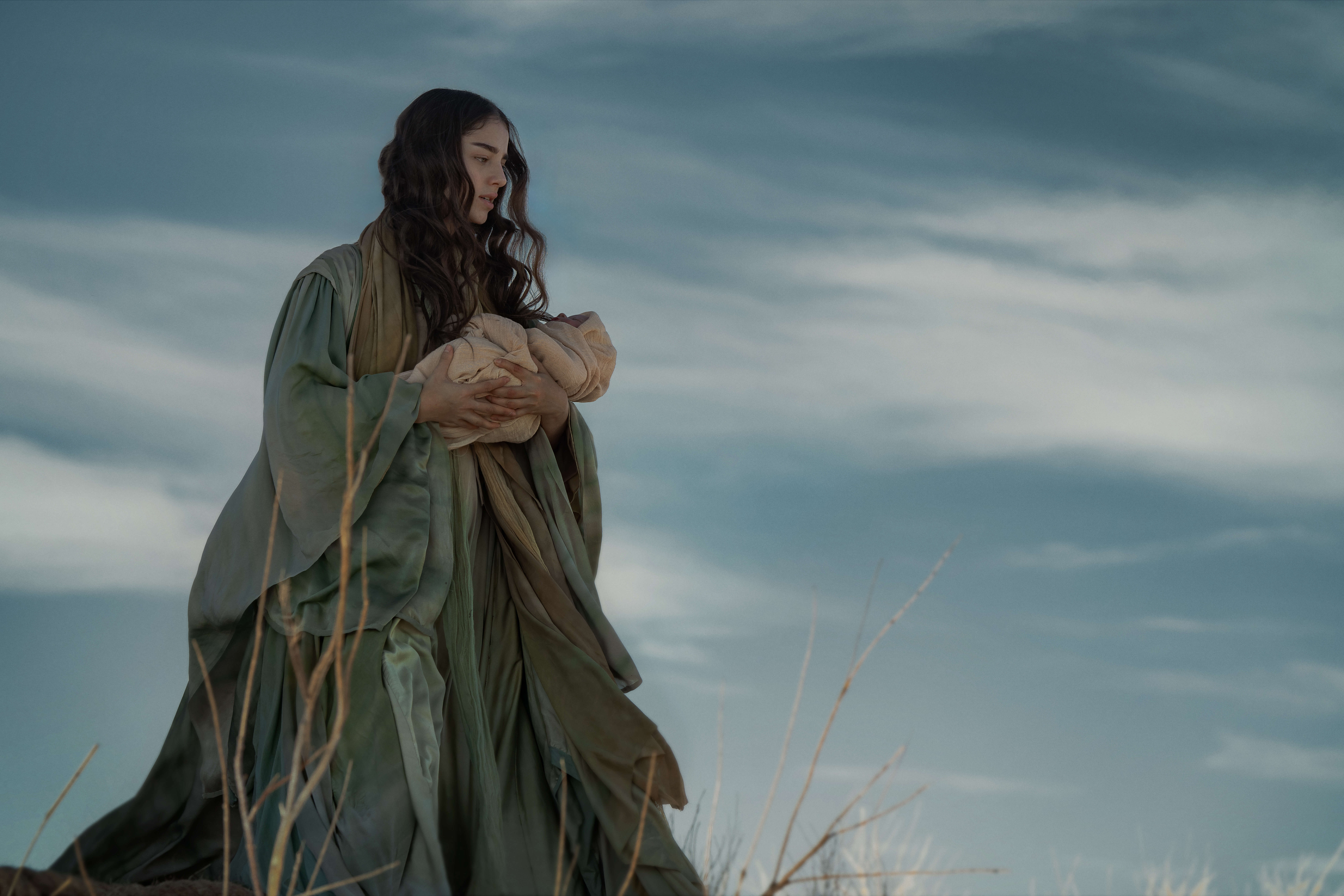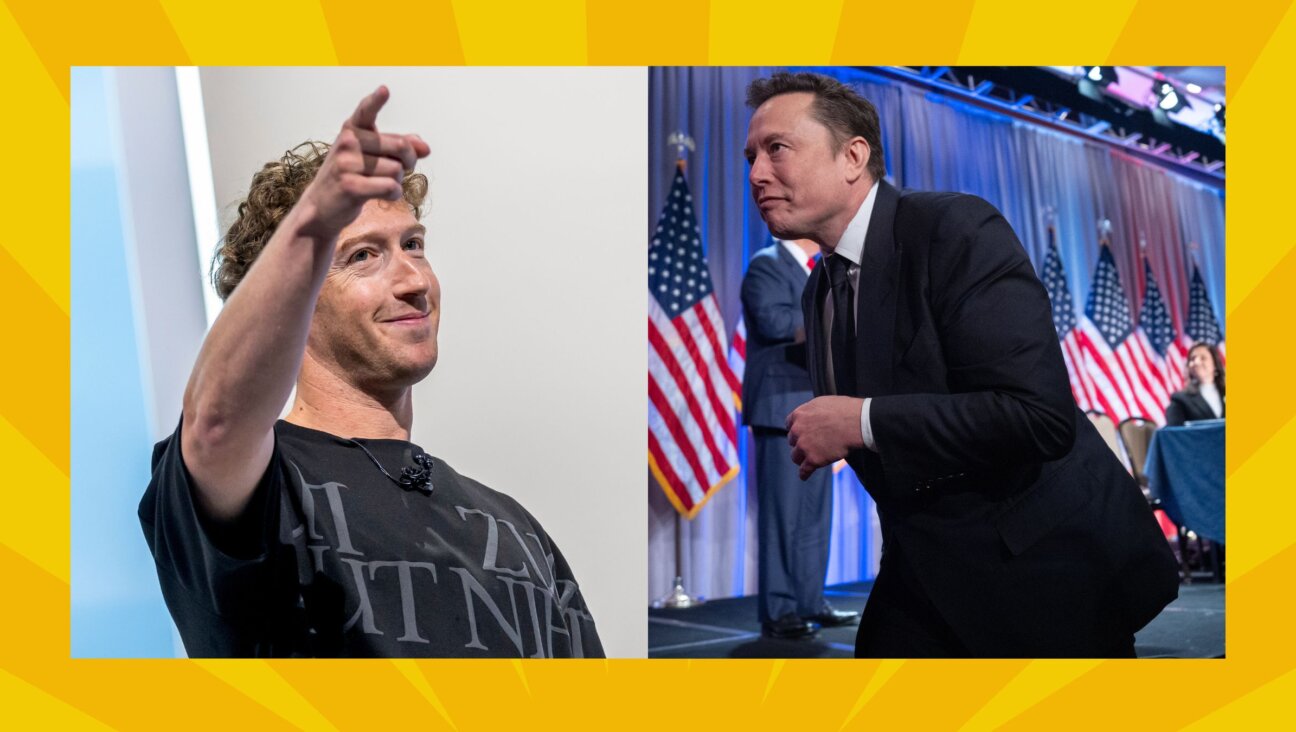In a Closet With No Light

Image by Courtesy New American Vision
Homosexuality is one of the most profound and least tractable problems confronting Orthodox Judaism today. The party line — that attraction to members of one’s own sex is simply another illicit desire that must be overcome — is not a sufficient response to the painful experiences of gay and lesbian Orthodox Jews. “Eyes Wide Open,” a film by Israeli director Haim Tabakman, tragically illustrates this often denied truth.

Image by Courtesy New American Vision
Homosexuality in the Orthodox community has been the subject of several films in the past decade, including the 2001 documentary “Trembling Before G-d” by American director Sandi Simcha DuBowski and the 2004 film “Keep Not Silent” by Illil Alexander, which won an Israeli Academy Award for its depiction of three Jerusalemite lesbians. “The Secrets,” a 2007 drama by Israeli director Avi Nesher that was also about gay women in the Orthodox community, garnered eight Israeli Academy Award nominations, while “And Thou Shalt Love,” a short film by Chaim Elbaum based on his personal experience as a gay Orthodox Jew, won the best drama award in 2008 at the Jerusalem Film Festival.
As a full-length feature, however, “Eyes Wide Open” presents a uniquely compelling portrayal of closeted gay Jews in a tightly knit, ultra-Orthodox Jerusalem community. As the film opens, we see the black-coated, black-hatted, black-bearded Aaron Fleischman struggling in the pouring rain to open his butcher shop, which has been closed since the death of his father. Aaron is not long inside before Ezri, a rain-drenched, bedraggled young man, comes stumbling in, asking to use the telephone. It soon comes out that Ezri is new in Jerusalem with no job and no place to stay. After Aaron finds him in the synagogue the next morning, sleeping on a pile of coats, he offers Ezri a job in the butcher shop and a place to sleep in the back room.
Whether the mutual recognition and attraction of the two men is immediate or not is left ambiguous, but the full realization of their shared situation inevitably comes. At first, Aaron resists. He fervently believes that God sends no test that cannot be passed, although he remarks with wrenching agony that no one else can possibly fathom this particular trial. Nonetheless, he tells Ezri: “God didn’t create such things as broken tools…There is no such thing as broken.” The implication that homosexuality is not, as much of the Orthodox world would have it, an aberration from nature is unintended by Aaron, but it remains present nonetheless.
Aaron’s resistance, however, does not — cannot — last for long, and he and Ezri fall into a perilously passionate relationship. Unlike Aaron, however, Ezri has a past to hide, and the self-appointed neighborhood “modesty police” soon come knocking on the butcher shop door, telling Aaron that he must get rid of Ezri — or else.
While such incidents illuminate the tyrannical levels of social control sometimes present in the ultra-Orthodox world, they are not representative of the overall tenor of “Eyes Wide Open.” Despite its taboo subject matter, Tabakman’s film is no ripping exposé of religious Jerusalem. In fact, it might even be considered a loving, if painful, portrait. Aaron’s world, from his shabby but well-kept shop to his intimate synagogue study group to his modest, love-filled home, feels comforting and familiar. Zohar Strauss’s powerfully understated performance portrays Aaron as an upright and righteous (perhaps almost too righteous), conscience-stricken individual, and Ran Danker’s characterization of Ezri is more as a lost and confused, rather than an angry and rebellious, young man. Particularly moving is Ravit “Tinkerbell” Rozen’s performance as Aaron’s loving and perceptive wife, Rivka, who is forced to confront a situation she has only just begun to comprehend.
If there are few villains in this film, however, there are also no real heroes. Aaron’s spiritual mentor, Rabbi Vaisben, is concerned throughout the movie with the relationship between Israel Fischer, a young ne’er-do-well, and the daughter of a close friend, who is meant to become engaged to someone else. In an effort to end the relationship, Vaisben brings along Aaron to confront the offender. Although Aaron tells Fischer that he is fortunate to be approached by them rather than by the modesty police, who would trash his house and beat him up, Aaron is still participating in the kind of puritanical arm-twisting that is at that same moment threatening to upend his own life. Ultimately, everyone bends in some way to the moral strictures of the community. There can be no acceptance of homosexuality, or any other kind of open defiance, without giving up everything — friends, family, home.
There is no question that a film such as “Eyes Wide Open,” along with its dramatic and documentary predecessors, continues to bring a historically hushed-up issue into the light of public scrutiny. Whether this will bring about any tangible effect for those most affected, however, is still a matter of conjecture. Events such as last December’s symposium at Yeshiva University, titled “Being Gay in the Modern Orthodox World,” seem to indicate a kinder, more sensitive treatment of the issue, if not an actual solution. Still, on the far fundamentalist end of the spectrum, Rabbi Yehuda Levin of the Rabbinical Alliance of America recently issued a press release stating that “the practice of homosexuality is a spiritual cause of earthquakes.” Clearly, there is a long way to go.
At the end of “Eyes Wide Open,” Aaron goes to bathe in a spring outside the city, which he had visited in a happier time with Ezri. Here the only sign of civilization is the power lines running through the rock-strewn hills — no neighbors or rabbis or modesty police constantly watching and prying into everyone’s business. Here there is no one except Aaron, alone, in the wilderness. A metaphor, if you want, for a tragic and lonely life.
Ezra Glinter is the books editor of Zeek: A Jewish Journal of Thought and Culture.
Watch the trailer for ‘Eyes Wide Open’:
A message from our CEO & publisher Rachel Fishman Feddersen

I hope you appreciated this article. Before you go, I’d like to ask you to please support the Forward’s award-winning, nonprofit journalism during this critical time.
At a time when other newsrooms are closing or cutting back, the Forward has removed its paywall and invested additional resources to report on the ground from Israel and around the U.S. on the impact of the war, rising antisemitism and polarized discourse.
Readers like you make it all possible. Support our work by becoming a Forward Member and connect with our journalism and your community.
— Rachel Fishman Feddersen, Publisher and CEO























